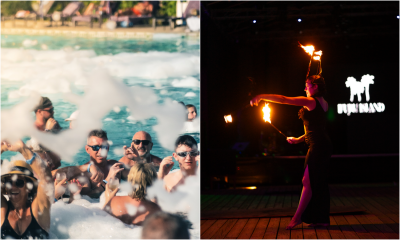Action
World champions soar above Maldives as first-ever permanent skydiving dropzone unveiled at Ifuru Island

Red Bull aerial athletes and record-breaking skydivers perform daring stunts above the all-sunset, all-beach, all-inclusive private island resort
A host of VIPs from the skydiving world – including Red Bull aerial athlete Fred Fugen and multiple world record holder David Nimmo – have taken to the skies above Ifuru Island Maldives to launch the destination’s first permanent skydiving dropzone.
Making the most if its own airport, the recently opened all-inclusive, all-sunset, all-beach resort teamed up with 21k-jump World Champion skydiver Will Penny and Skydive Maldives, Ifuru Island to create the skydiving dropzone, which offers a thrilling new perspective on the idyllic Indian Ocean destination for adrenaline seekers.

To mark the official launch, an all-star lineup of skydiving champions, world record holders and aerial athletes performed a series of daring stunts. Professional skydiver, base jumper and wingsuit pilot, Fred Fugen – famed for his exhilarating stunts with Red Bull – took to the air with his wife Laurence Fugen to perform an array of stunts, including wingsuiting their way down to earth with a skydiver upon each of their backs; while Australian skydiver Richard Pym flew a record-breaking 300m2 Maldivian flag and a 300m2 Ifuru Island flag through the skies during two impressive jumps that captivated a rapt crowd of dignitaries and resort guests on the private island.
Following one of his wingsuit flights and upon landing on the beach, Fred Fugen said, “It was beautiful, always so nice to fly above this landscape and super cool to fly the wingsuit in front of you guys, land on the beach. What a day. Another beautiful day in Ifuru.

Athletes including five-times world champion Raph Coudray; multiple world-record holders David Nimmo and Luis Lopez-Mendez; and Spanish multiple national champion Dani Gallego took to the skies up to 100 times a day throughout the launch week, performing a range of synchronised stunts and individual jumps. Intrepid Nepali mountaineer and hero of Netflix documentary 14 Peaks: Nothing Is Impossible, Nimsdai Purja MBE, was also on island to join the skydiving adventure.
On the launch of Ifuru Island Maldives’ permanent skydiving dropzone, World Champion freestyle skydiver and Skydive Maldives Manager, Will Penny, said, “We are incredibly happy to be here with Skydive Maldives at Ifuru Island Maldives. We’ve worked very hard for many months, to put everything in place, we have a fantastic team, incredible infrastructure and we can’t wait to welcome the world to experience this.“
“We have a team of very experienced professionals and tandem instructors. After a short safety briefing, within 20 minutes guests can be on a plane harnessed to a very experienced instructor, and enjoy the experience of a free fall and canopy ride before landing safely back on earth and going for a swim in the sea as well as enjoying the rest of this amazing resort.”

David Lince, Skydive Maldives Instructor said, “As a skydiving instructor, I really want to take happiness to its highest level – and doing this means having not only the best team, but also the best place to skydive. This is what we’ve reached here with Will Penny and Ifuru Island Maldives – we’ve found an amazing place and environment, giving more people the opportunity to fly in the sky and take in the spectacular views of the Maldivian islands and Indian Ocean. Sharing and giving happiness changed my life and made it so beautiful.. Having the chance to create this vibe and meet incredible souls is a blessing.. I will never stop”
Between the beginning of November and the end of March, guests can take to the sky before enjoying a captivating skydive over the turquoise waters of the Indian Ocean.
Daredevil guests can ascend to the heavens before leaping into the blue, witnessing the magnificence of the Maldives in 360 degrees, from the endless expanse of the Indian Ocean and its island jewels to the vibrant reefs peering from its depths – and now those staying seven nights or more can enjoy their first jump ‘on the house’. For those who find themselves wanting more, skydiving experiences** are currently available to book at a special launch price of USD550++
Ifuru Island Maldives is currently offering a free skydive with stays of seven nights or more. 50% Discount on Sunset Sky Suites, inclusive of the Exclusively Yours all-inclusive 24-hour meal plan,
For reservations or more information on Ifuru Island Maldives, please call +960 6582 800, email surprise@ifuruisland.com or visit www.ifuruisland.com.
Action
Sun Siyam Olhuveli invests in staff wellbeing with upgraded sports facilities
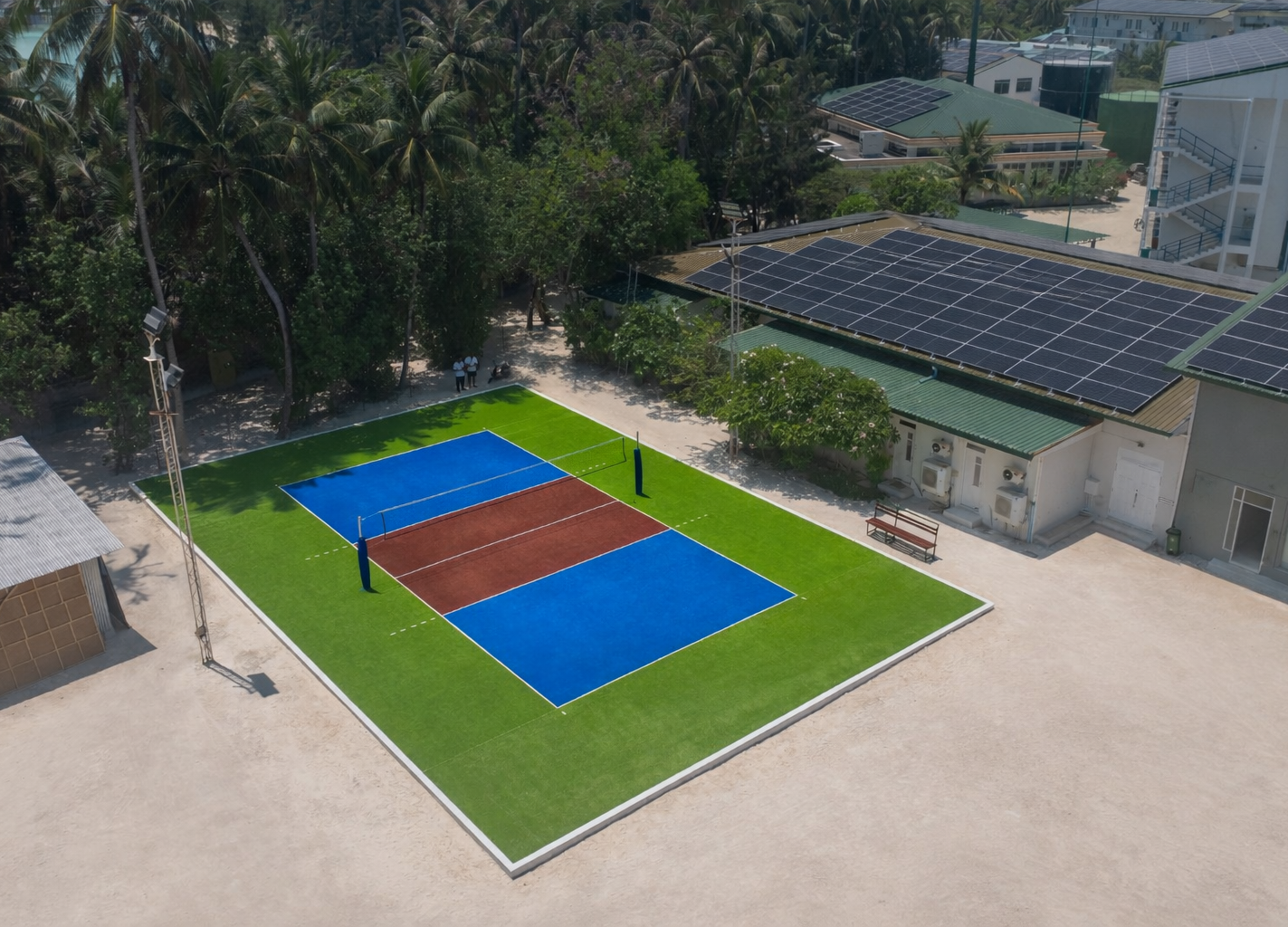
Sun Siyam Olhuveli has unveiled newly upgraded volleyball and futsal grounds for team members, reaffirming its commitment to employee wellbeing while advancing responsible, future-focused operations. The renovated volleyball grounds were officially inaugurated on 14 February, while the upgraded futsal ground opened earlier this year—together creating dedicated spaces for recreation, connection, and healthy competition across the island.
Designed to encourage regular physical activity and camaraderie beyond the workplace, the improved sports facilities represent a thoughtful investment in social infrastructure. They reflect a belief that wellbeing is fundamental to long-term performance, nurturing morale, teamwork, and a strong sense of belonging among team members.
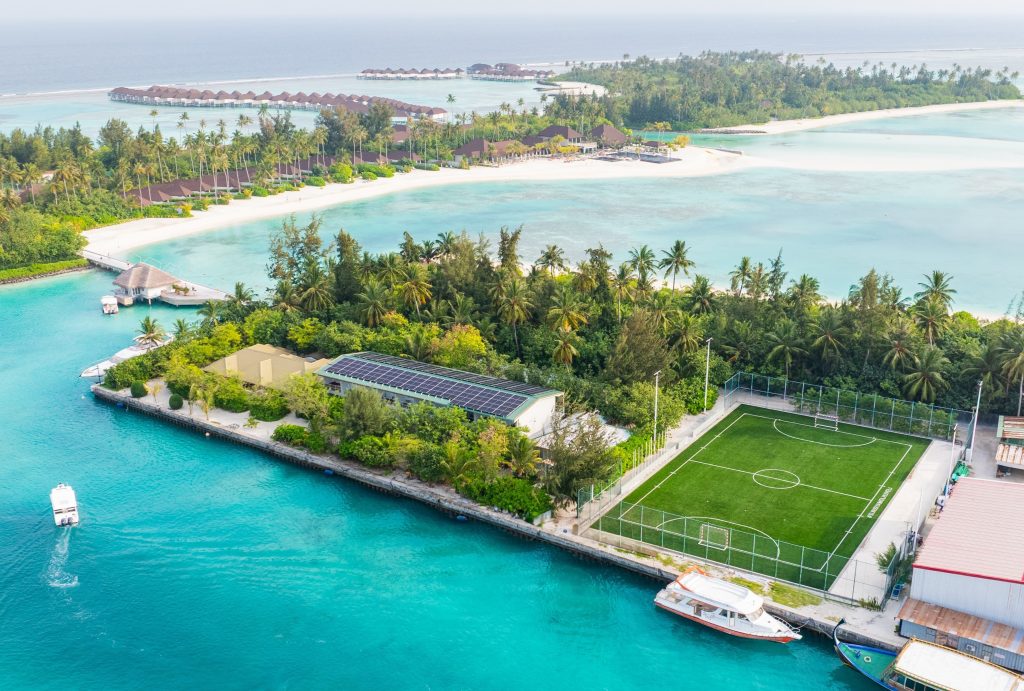
Alongside these developments, the resort has implemented NO BIN DAY every Tuesday, a practical initiative aimed at minimising food waste across operations. By encouraging mindful planning and responsible consumption, the initiative challenges teams to rethink habits around food—transforming sustainability into a shared, everyday discipline.
“Taking care of our people and the environment must go hand in hand. By investing in spaces that support our team’s wellbeing and introducing simple disciplines like NO BIN DAY, we are building a culture where responsibility is lived every day—naturally, collectively, and with purpose,” said Hassan Adil, General Manager of Sun Siyam Olhuveli.

Both initiatives form part of Sun Siyam Care, the group’s corporate social responsibility platform, and align with the Social Infrastructure and Responsible Consumption and Production pillars under the GDS framework. Together, they reflect a people-first approach to sustainability—where everyday actions create lasting impact for teams, operations, and the wider community.
Sun Siyam Care is committed to creating a positive impact for people, communities, and the environment through responsible operations, social investment, and long-term sustainability actions across its destinations in the Maldives and Sri Lanka.
Guests are encouraged to learn more about these initiatives by visiting the Sun Siyam Care website at sunsiyam.com/sun-siyam-care.
Action
Sheraton Maldives Full Moon celebrates sixth anniversary of Reefscapers collaboration
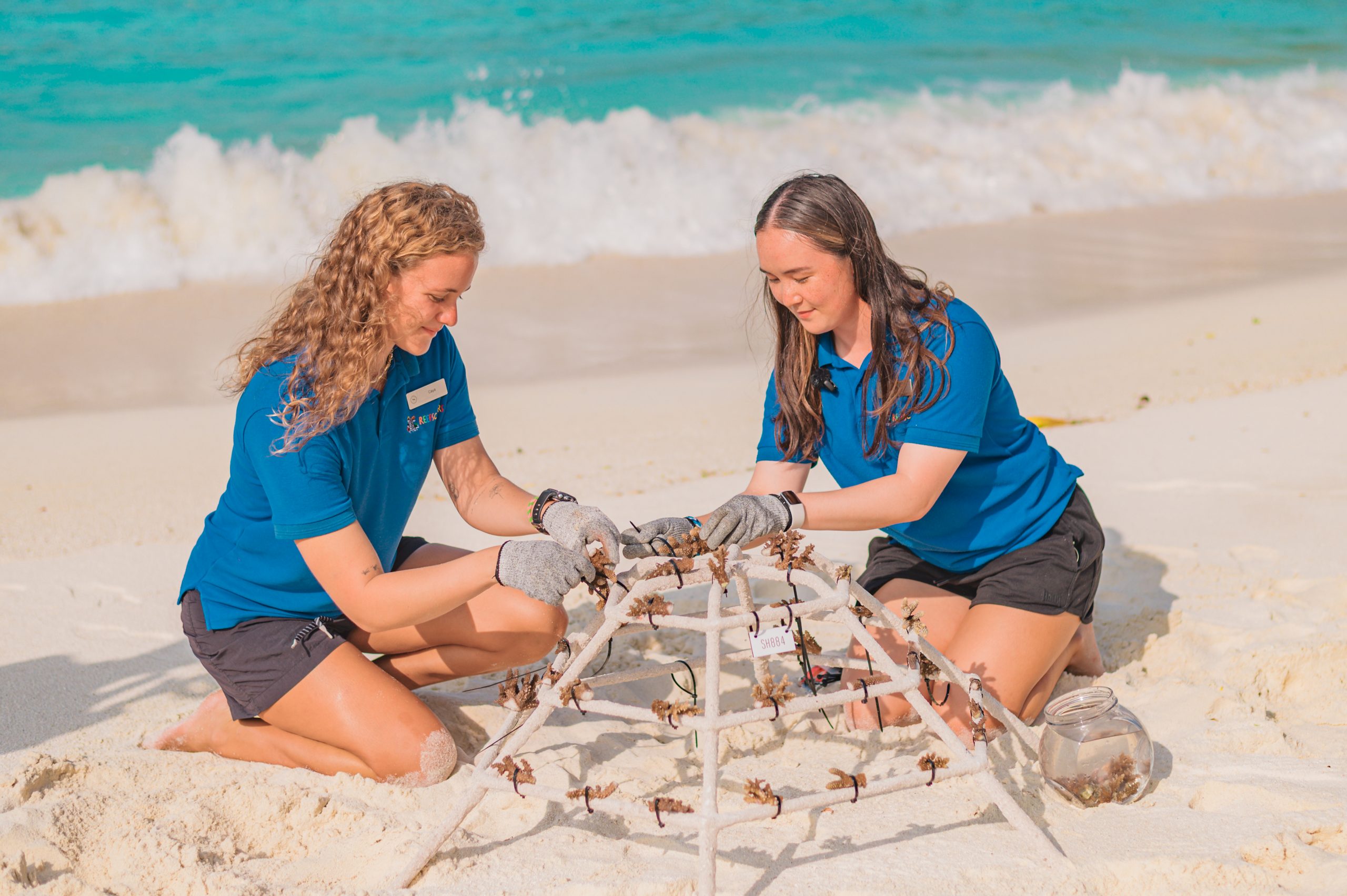
Sheraton Maldives Full Moon Resort & Spa marks the sixth anniversary of its partnership with Reefscapers on February 19, 2026, reaffirming its commitment to protecting and restoring the Maldives’ fragile reef ecosystems. Since launching the partnership in 2020, the resort and Reefscapers have worked together to restore coral habitats, support marine biodiversity, and engage guests in meaningful conservation experiences. The milestone also marks one year since the successful relocation of approximately five tons of coral to the resort’s house reefs — one of the partnership’s most significant conservation initiatives.
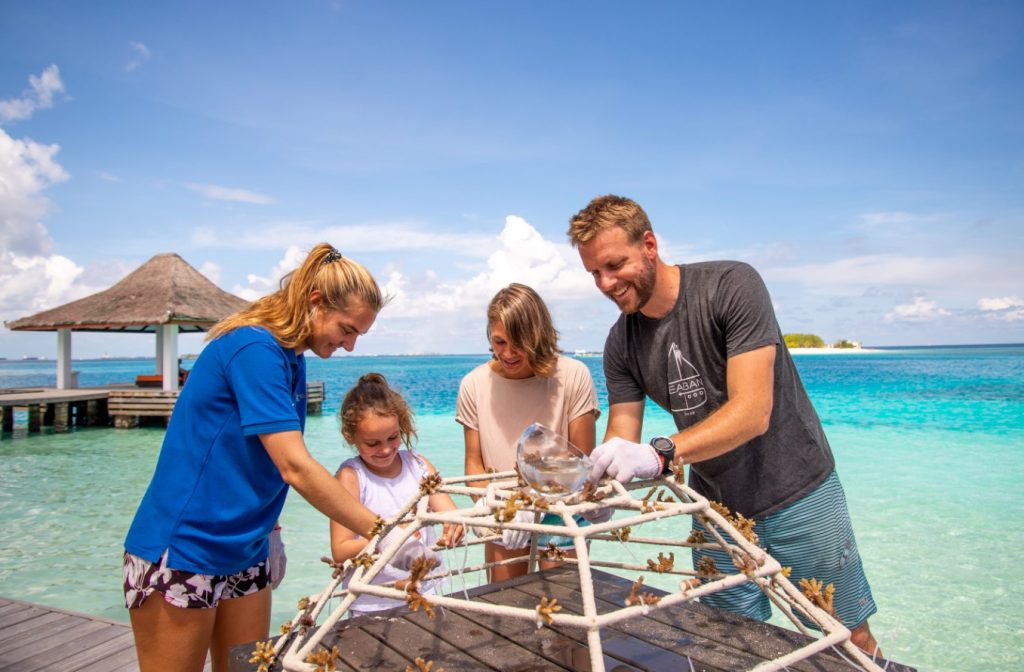
Over the past six years, the partnership has become a defining pillar of the resort’s sustainability journey, blending scientific restoration with purposeful guest engagement. To date, the initiative has resulted in the planting of 898 coral frames, supporting approximately 33,000 coral colonies now growing across the restoration sites. Through coral propagation, reef monitoring, and awareness programmes, these efforts continue to regenerate reef structures while deepening understanding of the essential role coral ecosystems play in sustaining marine life and protecting coastlines. Each thriving coral frame reflects a shared dedication to preserving the natural wonders that make the Maldives one of the world’s most extraordinary marine destinations.
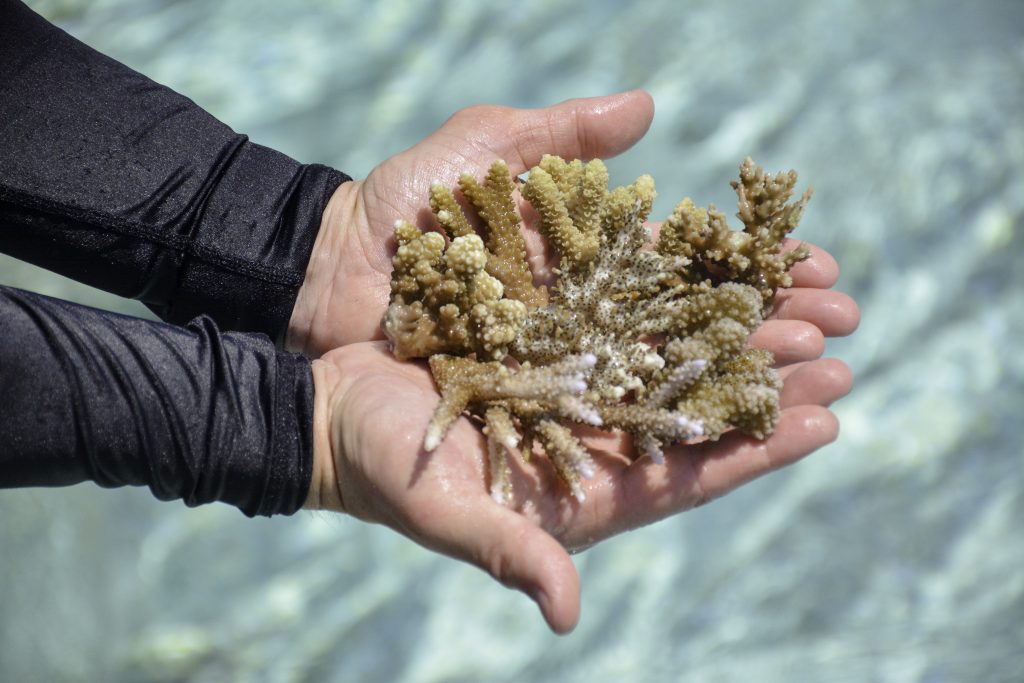
“What makes this partnership special is seeing how small, consistent actions turn into real change underwater. Watching the relocated corals settle, survive, and begin to grow over the past year has been incredibly rewarding for us and the guests who return and witness how they’ve helped restore a living reef,” shares Katelyn, the resort’s Marine Biologist.
A defining achievement of the collaboration has been the coral relocation project, which carefully transferred coral colonies from Ras Malé, also known as the Maldives Eco City, to the resort’s dedicated restoration site, safeguarding them from potential threats linked to land reclamation activities in the Fushi Dhiggaru Lagoon. One year on, these corals continue to flourish beneath the surface, strengthening reef resilience and contributing to the long-term health of the surrounding ecosystem.
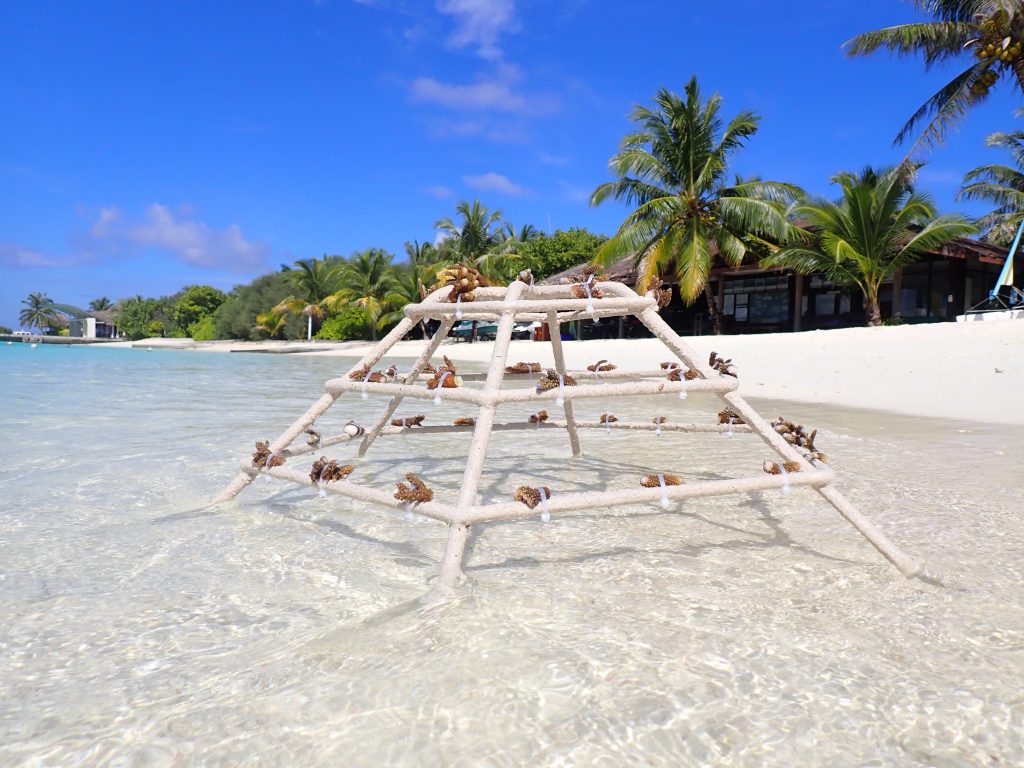
At the heart of the partnership lies the resort’s Adopt a Coral programme, part of the Good Travel with Marriott Bonvoy initiative, which encourages guests to travel with intention through meaningful environmental experiences. Through this hands-on activity, visitors can adopt and name a coral frame while learning directly from marine experts about coral ecology and the importance of protecting marine habitats.
To deepen this connection beyond the stay, guests receive growth updates on their adopted corals every six months, allowing them to follow the progress of their living contribution to the reef. As these corals grow over time, they become enduring symbols of renewal and shared responsibility, transforming a holiday memory into a lasting environmental legacy, and reflecting how travel can positively support local ecosystems and communities.
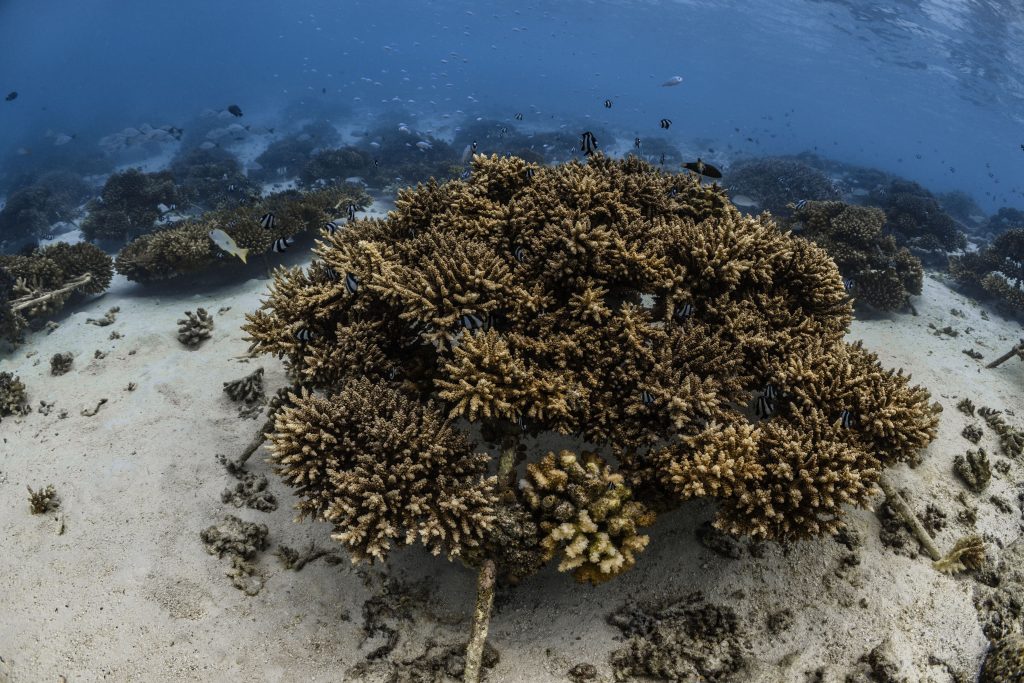
“Our island is surrounded by a remarkable marine environment, and protecting it is a responsibility we take seriously. Our partnership with Reefscapers reflects our belief that hospitality should go hand in hand with stewardship. Seeing the reef restoration progress over the past six years, and the involvement of our guests and associates in that journey, makes this anniversary especially meaningful for all of us,” comments Greg Allan, General Manager of Sheraton Maldives Full Moon Resort & Spa.
Through its continued collaboration with Reefscapers, Sheraton Maldives Full Moon Resort & Spa remains dedicated to advancing marine conservation while creating purposeful guest experiences rooted in sustainability, education, and connection to nature.
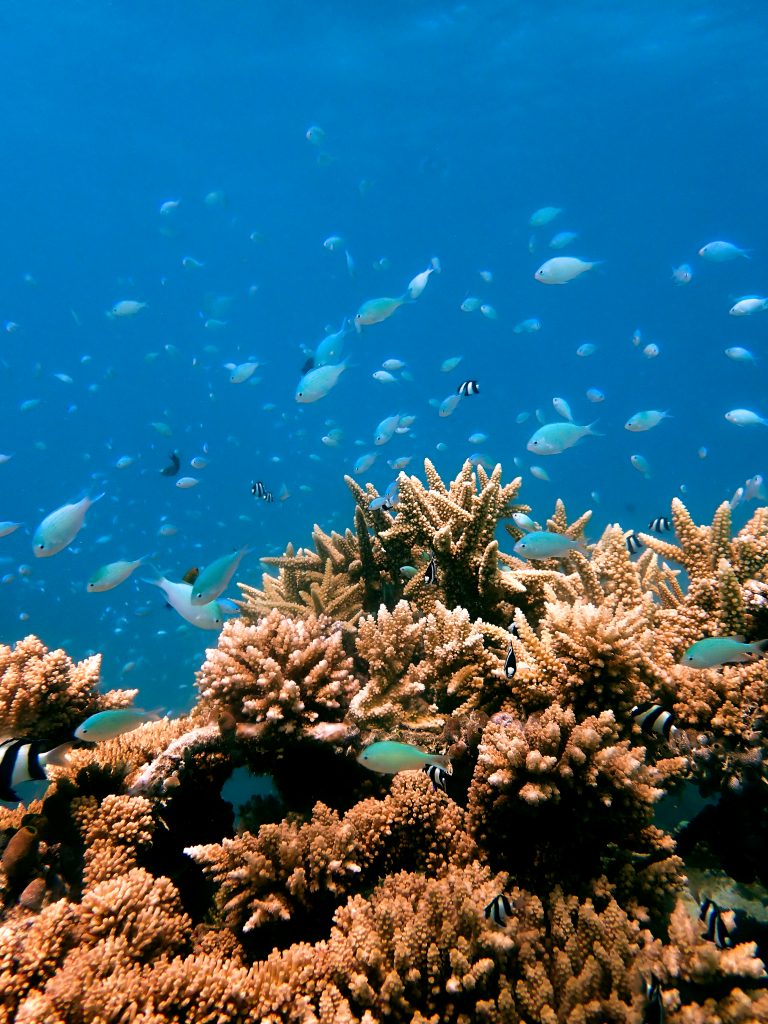
To discover more about the resort’s sustainability initiatives, join the Adopt a Coral programme, or plan a stay that supports reef conservation, visit sheratonmaldives.com or contact the reservations team at Sheraton.Maldives@sheraton.com.
Action
Sun Siyam Vilu Reef unveils expanded marine excursion portfolio

Sun Siyam Vilu Reef, part of the Sun Siyam Privé Collection, has introduced an expanded portfolio of water-based experiences designed to showcase the natural environment and marine life of the surrounding atolls. The enhanced programme combines exploration, activity and moments of calm, offering guests new ways to experience the Maldives through curated ocean journeys and personalised excursions.
Building on established activities such as Jet Car rides, SeaBob adventures and windsurfing, the resort has expanded its watersports offering to include private speedboat journeys and bespoke marine experiences. These additions are tailored for small groups seeking intimate and meaningful encounters with the ocean.
Available daily from the resort’s Watersports Centre, the new private speedboat excursions provide a personalised way to explore the hidden marine sites of Dhaalu Atoll. Designed for one to four guests, each journey offers flexibility and individual attention. Guests may choose from four-hour, five-hour or full-day itineraries, all of which include a freshly prepared barbecue lunch. From coral gardens to secluded sandbanks, the excursions highlight the region’s diverse marine landscapes.
The programme’s centrepiece is the Full Day Adventure Trip, which offers an extended exploration of key marine locations. Highlights include the Coral Garden, known for its biodiversity and reef formations; Turtle Point, where sea turtles are frequently sighted; and Nurse Shark Point, which provides opportunities to observe nurse sharks in their natural environment. The experience concludes with a beachside lunch on a private sandbank, set against uninterrupted views of the Indian Ocean.
For guests seeking a balance between activity and relaxation, the Waves of Adventure and Calmness experience combines a private two-hour snorkelling safari or Jet Ski safari with a full-body massage at the resort. The programme is designed to transition smoothly from ocean exploration to restorative island time, reflecting the relaxed pace that characterises Sun Siyam Vilu Reef.
As part of the Sun Siyam Privé Collection, Sun Siyam Vilu Reef continues to focus on personalised service and experiences rooted in the natural setting of the Maldives. Through its expanded watersports offering, the resort invites guests to engage with the marine environment while enjoying a sense of privacy, discovery and connection to the Maldivian seascape.
-
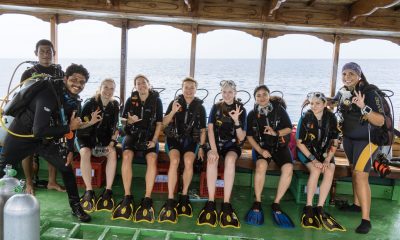
 Action1 week ago
Action1 week agoAtmosphere Foundation launches annual dive training scholarship for Maldivians
-

 Entertainment1 week ago
Entertainment1 week ago‘One festival, every sense’: Fari Islands Festival announces August 2026 return
-
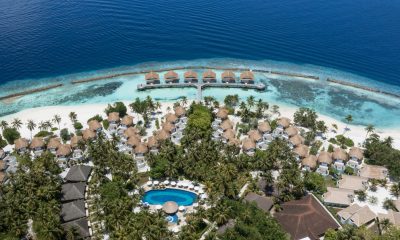
 Awards1 week ago
Awards1 week agoBandos Maldives earns Booking.com Traveller Review Award 2026
-

 Featured1 week ago
Featured1 week agoAncient banyan tree anchors spiritual experiences at Machchafushi Island Resort
-
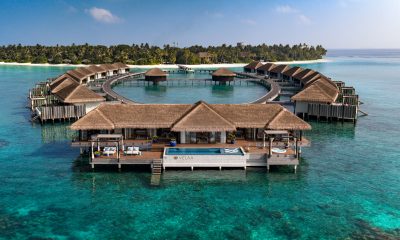
 News1 week ago
News1 week agoRefined overwater vision: Velaa Private Island’s upgraded Ocean Pool House
-
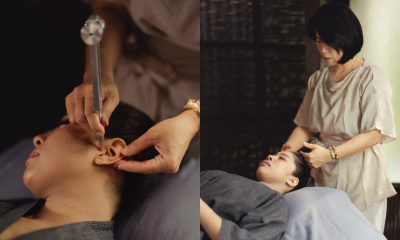
 Featured1 week ago
Featured1 week agoYoko Kawaguchi to lead holistic wellness residency at Vakkaru Maldives
-

 Cooking6 days ago
Cooking6 days agoA spring of flavours: Nowruz dining series at JW Marriott Maldives Resort & Spa
-
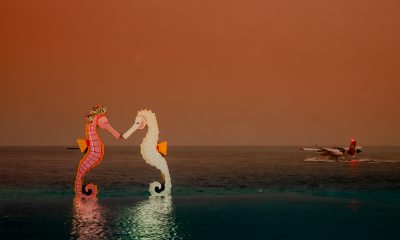
 Love1 week ago
Love1 week agoFushifaru Maldives combines romance and lunar new year traditions in guest programme











